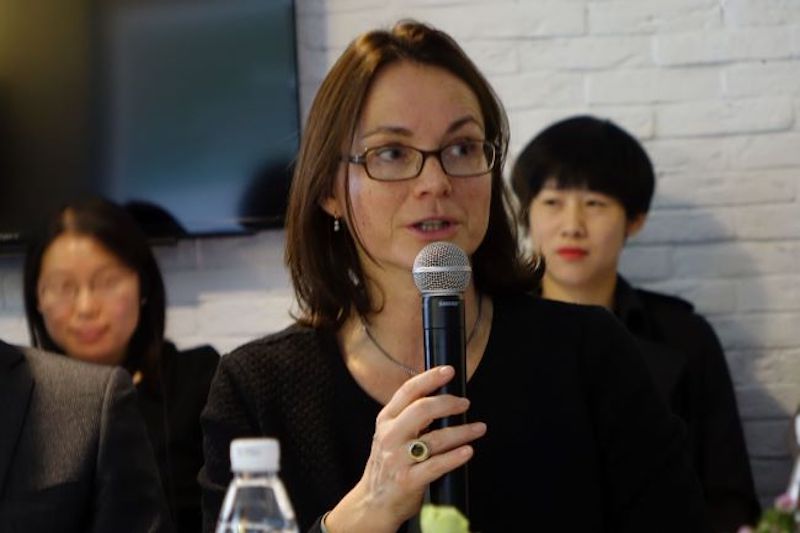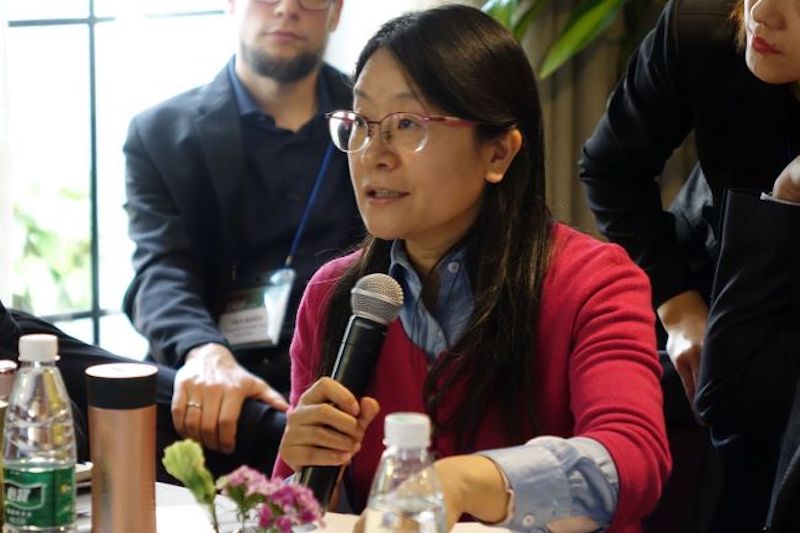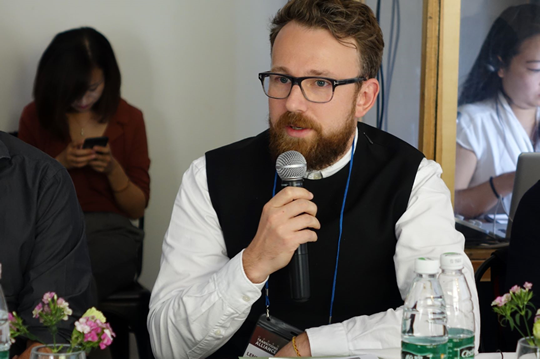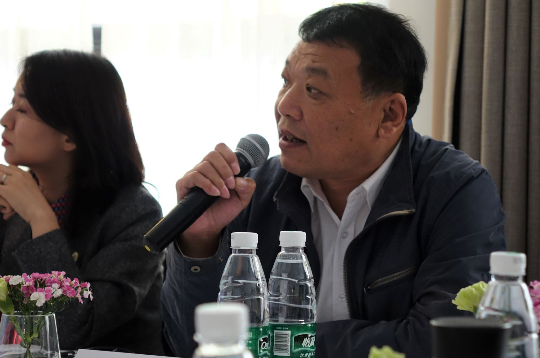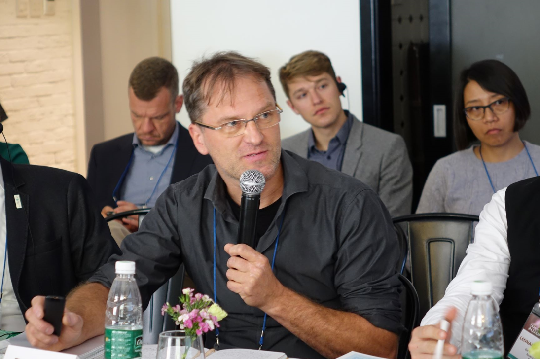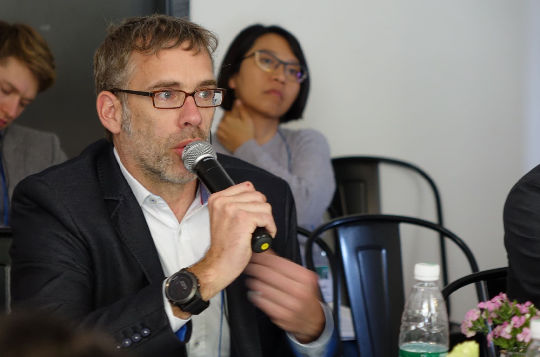Chinese and German UTA Cities Gathered in Beijing

The Urban Transitions Alliance China Event entitled “Industrial Legacy. Sustainable Future” was successfully held in Beijing, China on 30 October 2018, gathering 30 representatives from Chinese and German UTA participating local governments and partners to have in-depth discussions on urban transitions toward a sustainable future.
Shu Zhu, Regional Director and China Representative of ICLEI East Asia warmly greeted the guests and participants with a short welcome speech, and briefly updated the audience on the latest progress of the Urban Transitions Alliance and ICLEI.
Launched in November 2017, the Urban Transitions Alliance (UTA) is managed by ICLEI and funded by Stiftung Mercator, to present an opportunity for industrial and former industrial cities across the world to become global leaders in sustainable urban development. Up until today, 11 local governments from China, Germany, the USA, and Poland have officially joined the Alliance.
Through participating in international forums, thematic webinars, and Alliance Challenge Exchange calls coordinated under the UTA, participating local governments of the Alliance work closely to identify common challenges, share knowledge, co-create solutions and forge strong working relationships with peers, experts, and private sectors on the four core working areas of energy, mobility, infrastructure, and social transition.
|
Vera Rodenhoff of Germany’s Federal Ministry for the Environment, Nature, Conservation and Nuclear Safety |
Dengli Ming of Beijing Municipal Environmental Protection Bureau
|
In the opening remark, Vera Rodenhoff, Head of Division, International Cooperation on Environment, Energy and Cities; OECD and OECD-Countries, the German Federal Ministry for the Environment, Nature, Conservation and Nuclear Safety, stressed that integrating nature into cities is not only pleasant for the residents and good for human health but also prevents negative impacts of climate change and heat-island effects. “Though at very different scales, German and Chinese industrial cities are facing some similar challenges related to climate change,” she added, “and it is valuable for both sides to learn from each other.”
Dengli Ming, Chief of the Science, Technology and International Cooperation Division, Beijing Municipal Environmental Protection Bureau, China shared the city’s 20 years of experience in air quality and environmental improvement and emphasized international cooperation as a way for local governments to learn from each other.
Many European cities have gone through industrialization a long time ago, and have entered the stage of transition toward a sustainable future. “Chinese cities, on the other hand,” Ming added, “only started industrializing three decades ago, and the process is still ongoing in many places. Through participating in networks like ICLEI, Chinese local governments are provided with opportunities to learn from experiences of cities in Germany and many other countries in the world.”
Defining Urban Transitions
Following the opening session, experts from China and Germany had a thorough discussion surrounding the key question of “how can the different transition dimensions be navigated in a holistic and integrated way?”
With the “Revitalizing Three Olds – old towns, old villages, and old factories” project in Guangdong Province as an example, Wei Bai from the China Center for Urban Development highlighted the importance of including urban spatial re-planning and re-distribution and improving the investment environment in urban transitional processes. “Attracting experts and professionals to stay is the key to making a city sustainable” she added.
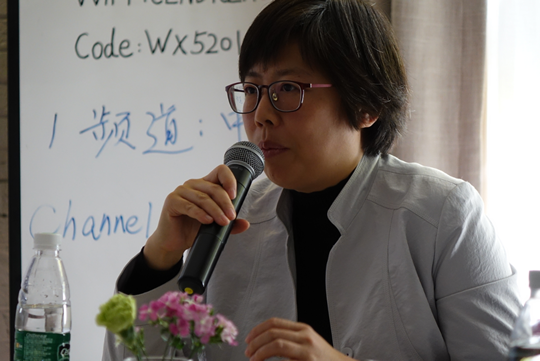
Wei Bai of the China Center for Urban Development |
|
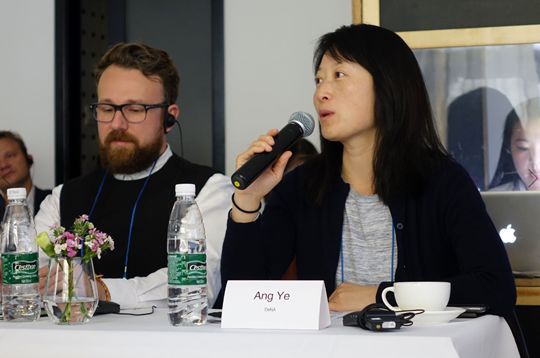 Ang Ye of the German Energy Agency |
Lennart Kümper-Schlake of the German Federal Agency for Nature Conservation pointed out that the greening of urban infrastructures plays a dominant role in a number of German cities’ transitions from industrial legacies. He emphasized that green infrastructures have great potential for multi-functionality and cost-effectiveness by providing cities with possible solutions to problems including climate change adaptation, nature conservation, and human well-being.
Ang Ye of the German Energy Agency (dena) highlighted the importance of developing integrated master plans for urban transitions specifically serving local needs. “While we work to introduce German and European successful cases to Chinese cities through international cooperation,’ she said, “it is important that cities and communities know their capacity and needs, so as to apply solutions accordingly and appropriately.”
Transition Visions, Challenges, and Learnings from Industrial Legacy Cities
On this occasion, representatives from three Chinese participating local governments of Beijing Economic-Technological Development Area (or “E-Town”), Beijing Huairou District, and Shijiazhuang Yuhua District, and two German cities of Essen and Leipzig all presented their local actions and experiences in transitioning away from industrial legacies, and exchanged the challenges they are faced with.
In face of air pollution and industry structural changes, Shijiazhuang Yuhua District expanded its support for innovative technologies, and guided upgrades of local enterprises; Beijing Huairou District formed an advisory group to formulate an implementation plan on environmental and ecological development, and is seeking to further embrace the film and television culture industry in the district originated from 1995. Beijing E-Town, on the other hand, identifies green buildings as a key area of work for their transition towards a town with high quality of life, as while buildings are basic components of cities, they are also the main bodies of energy consumption and emissions.
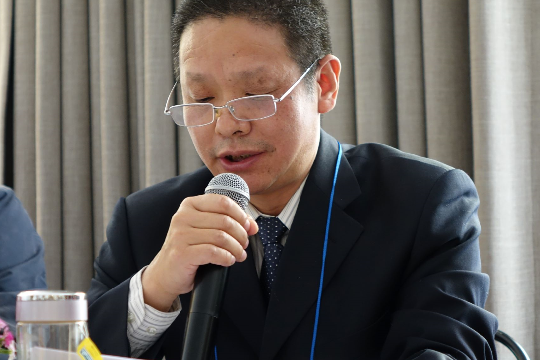
Qingmin Bian of Shijiazhuang Yuahu District |
|
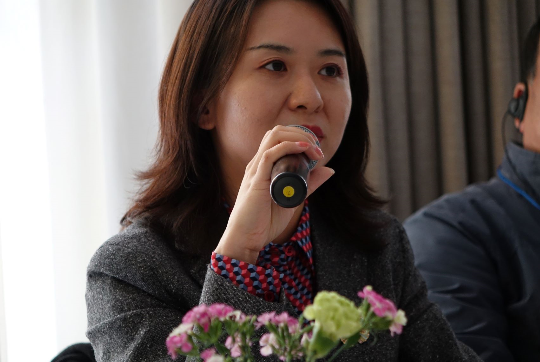 Ling Liu of Beijing E-Town Ling Liu of Beijing E-Town |
The German city of Essen recognized culture and knowledge as the basic tools for transition following the mining industry crises back in the 1950s and 1960s. In addition to restoring protected areas such as the Emscher Landscape Park with cycling paths and hiking trails, efforts have also been paid to upscale higher education in the city. Leipzig suffered from industry collapse and serious population loss in the 1990s, but decided to follow the European approaches of urban policies for sustainable development, and manages its development through strategic planning with the needs of different sectors taken into consideration, and activities oriented towards citizens’ needs with their participation.
|
Torsten Wilke of Leipzig |
Sebastian Schlecht of Essen |
Site Visit
In the afternoon, participants visited the Beijing Boda Water Co. Ltd, a wastewater treatment company located in Beijing E-Town. Established in 2008, Boda Water specializes in regional wastewater treatment, water re-use, and related technology development, and produces high-quality reclaimed industrial water accounting for 35% of the total water supply in E-Town.
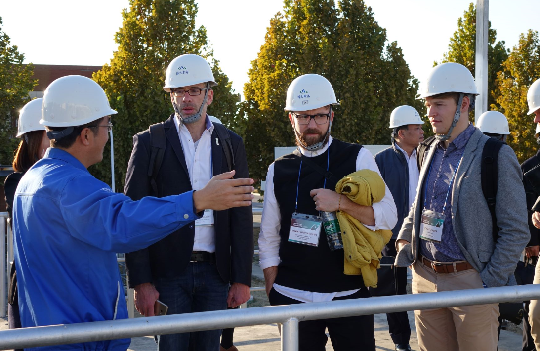
Participants learned about the wastewater treatment system at Beijing Boda Water Co. Ltd
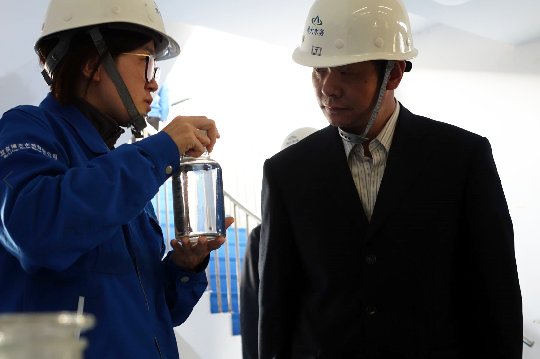
High-quality reclaimed industrial water
For further information on the session, please download the event report.


